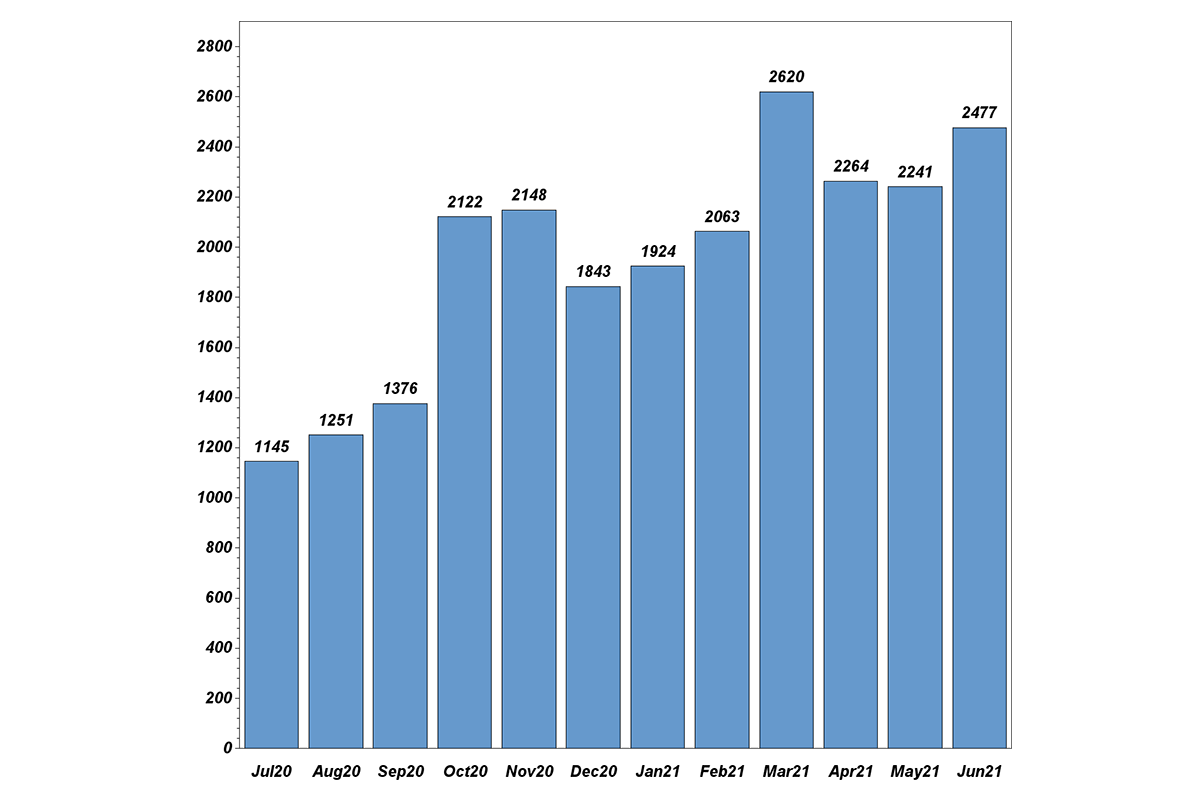
Now Enrolling: EA2201 for Rectal Adenocarcinoma
July 7, 2021
Trial Updates: TMIST Enrollment Hits 50,000; NCI-MATCH News; Recent Research Results
July 7, 2021Now Enrolling: EA8192 for Upper Urinary Tract Cancer

Young Caucasian female doctor in glasses and white medical uniform talk with senior male patient in clinic. Woman GP have consultation with mature old client in private hospital. Healthcare concept.
EA8192 – A Phase II/III trial of MEDI4736 (Durvalumab) and Chemotherapy for Patients with High Grade Upper Tract Urothelial Cancer Prior to Nephroureterectomy
The study chair for this trial is Jean Hoffman-Censits, MD (Johns Hopkins University/Sidney Kimmel Cancer Center). The study co-chairs are Petros Grivas, MD, PhD (University of Washington/Fred Hutchinson Cancer Research Center), Vitaly Margulis, MD (UT Southwestern/Simmons Cancer Center), and Daniel Shevrin, MD (NorthShore University HealthSystem).
For patients with invasive and/or locally advanced upper tract urothelial cancer (UTUC), the standard of care is radical nephroureterectomy, a surgical procedure to remove the kidney, entire ureter, and a small piece of the bladder. However, systemic recurrence and progression rates after surgery are high at 45%-60%, yet postoperative impairment of renal function limits the use of systemic adjuvant therapy for many patients. Previous research has demonstrated a role for perioperative cisplatin-based chemotherapy in UTUC – but cisplatin is potentially toxic to kidney tissue, which may limit the application for such regimens.
In addition to cisplatin-based chemotherapy, checkpoint inhibitor therapy has also shown efficacy in UTUC in prior studies. Based on these findings, the EA8192 study team seeks to determine if neoadjuvant treatment with the anti-PD-L1 monoclonal antibody durvalumab combined with chemotherapy improves patient outcomes over chemotherapy alone. Because a number of patients in this population may be ineligible to receive cisplatin-based chemotherapy due to toxicity, there are two cohorts: cisplatin-eligible and cisplatin-ineligible.
Patients in the cisplatin-eligible cohort will be randomized to receive either cisplatin-based chemotherapy plus durvalumab or cisplatin-based chemotherapy alone. This comparison is the phase III portion of the trial. Patients who are cisplatin-ineligible will receive gemcitabine plus durvalumab (the single-arm phase II segment). Patients in all three arms will undergo radical nephroureterectomy, and then return for follow-up every three to six months after surgery for five years. The primary objective for the cisplatin-eligible cohort is to compare event-free survival between the two arms. The primary objective for the cisplatin-ineligible cohort is to evaluate pathologic complete response at the time of surgery.
Patients may be eligible for this study if they have a confirmed diagnosis of high grade upper tract urothelial carcinoma (proven by biopsy within 60 days prior to trial registration). They must not have any component of small cell carcinoma, evidence of metastatic disease, or enlarged lymph nodes.
Learn more about EA8192 at ecog-acrin.org.
![ECOG-ACRIN logo[19516]275×75](https://blog-ecog-acrin.org/wp-content/uploads/2021/03/ECOG-ACRIN-logo19516275x75.png)
